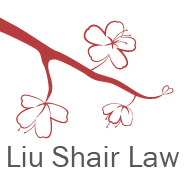What is Trust Administration?
People have heard of probate court and know that it’s something that they want to avoid having their family go through. They understand that the primary way to bypass the need for probate proceedings is by having a fully funded trust. From there, many people may not know what happens when a trust needs to be administered.
Typically, when a trust is set up by clients, during their lifetimes, the trust is revocable. This means that the clients still have the freedom to work with an attorney in changing their wishes and that they can add or remove trust assets. When clients pass away, the trust may lock up or become irrevocable. When a trust becomes irrevocable, the terms of the trust cannot be changed (unless there are administrative issues and the trust needs to go through a decanting). Instead, the trustee’s job is to follow what the trust dictates with regards to whom the assets are distributed, when they receive the assets, and any restrictions that may go along with the client’s wishes. This is the process of trust administration, of which there can be several types: outright distribution trust administration, ongoing trust administration, or clean-up.
Often, trustees may work with an attorney, accountant, or financial advisor on the trust administration to ensure that the trust terms are followed correctly, the appropriate taxes are filed, and trust assets are being managed prudently.
When working with an attorney, the trustee is the attorney’s client. The trustee first brings all of the relevant Estate Planning documents and the attorney will review the trust to understand the terms and then discuss all the action items with the trustee, determining who needs to do what. Some of the preliminary items may require sending legal notice to beneficiaries, getting in touch with financial institutions or the IRS/Franchise Tax Board, creating a comprehensive inventory of trust assets, and though the probate may not be necessary, lodging the will with the probate court for its records. (Beneficiaries may also decide to hire their own attorneys if they are concerned about making sure they are receiving their inheritance as intended.)
-Outright distribution
When the beneficiaries of the trust are all entitled to receive their inheritance immediately, the trust administration may be more straight forward. The trustee essentially must follow the trust to distribute the trust assets to the correct people. This process will likely take several months from start to finish, in order to notify the beneficiaries of their rights, work with the appropriate companies or entities to manage the assets, divide the assets, and then wrap everything up. The trustee may be required to provide an accounting to all the beneficiaries of the transactions that took place during the trust administration.
-Ongoing administration
When the beneficiaries of the trust are not able to fully receive their inheritance, whether because they are still minors, have special needs and will not be able to manage the funds, or because the beneficiary has otherwise not reached the final age of inheritance, there will be trust administration for a longer period of time. This could last for a given number of years or even the lifetime of a beneficiary. The trustee’s role may be much more involved in managing the trust funds, keeping a thorough accounting, and the trustee may coordinate with the attorney periodically through this time frame.
-Clean-up
When there are two settlors who created the trust and one passes away, depending on the way the trust is structured, the level of administration will be different. If the trust does not change after the first spouse passes, then administration may consist of cleaning up the documents to remove one spouse’s name and taking the first spouse’s name off of any assets. If the trust structure changes or certain gifts are to be made upon the first spouse’s passing, then the trustee (generally the surviving spouse) would handle these action items and then proceed with managing the trust(s).
An attorney working on the trust administration will be the point person for explaining legal terms and the process that the trust has set forth. When working with trust administration clients, the trustee will get in touch with us for questions, ask for advice on how to approach different steps, or recommendations for related professionals since we have experience with administration. The attorney may also be coordinating with other professionals to ensure everything is going smoothly. It is the first time going through this process for most trustees (unless they are private professional fiduciaries or corporate trustees) so we are able to become trusted guides. It is not necessary, but can be ideal if the attorney or law firm who drafted the documents is also handling the trust administration.
Even though different professionals may be seeing the administration through, it is important that clients choose trustees they feel will be able to manage the administration process. Though the process may seem daunting, it’s our job to help it be as smooth as possible.

